Swiss chef in Qatar: ‘A tsunami of people is coming our way’
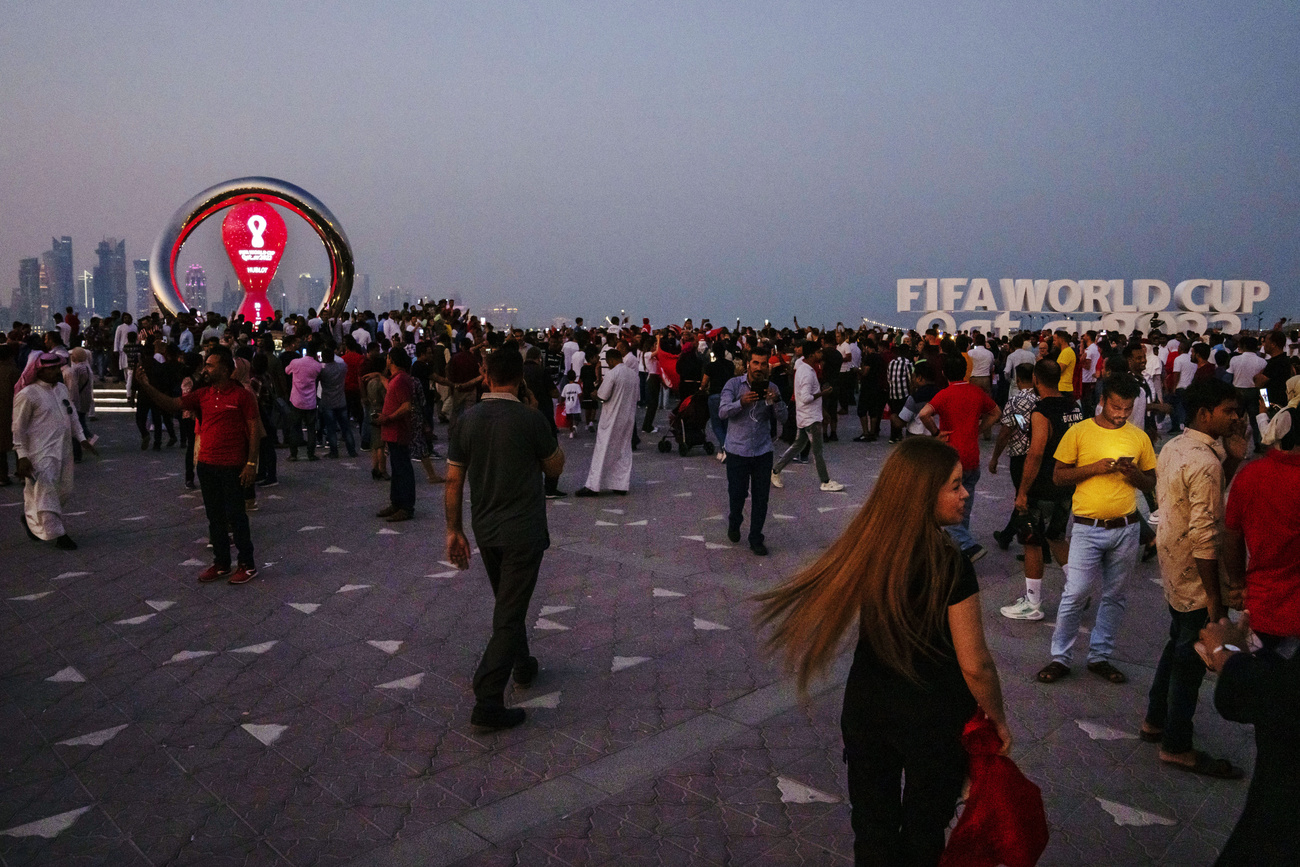
The football World Cup kicks off in Qatar on November 20. What is life like as a Swiss person in a country that restricts freedom of expression and has been heavily criticised in the run-up to the tournament? Chef Simon Wipf gives us a taste from Doha.
“If you live here, it’s clear that you have to respect the culture and religion. Kissing, hugging and holding hands in public are frowned on. The rules are strict, although they used to be stricter. But on the plus side, there is a high level of security. It is well policed and there are cameras installed on every corner. If you do something stupid, like driving too fast for example, you’ll be caught quickly. Not that this has happened to me yet. But I have heard of such cases.
I have been living in Doha, the capital of Qatar, for four years. Switzerland has not been home for more than 19 years. From time to time, I think about going back. After my apprenticeship as a chef, I ventured out into the big wide world: I was in Canada, the USA, Malaysia, Brunei, Paris, Hong Kong and Istanbul, as well as working on cruise ships and at airports. Most recently, I was a chef in Dubai in a restaurant on the 68th floor.
I have had to work hard to get where I am now. I have only been successful as a chef for a few years. Over the course of my global career, I have always been the only Swiss person in the kitchen.
Here in Doha, I worked at the Intercontinental Hotel until a few months ago. Recently, however, I started a new job as executive chef at a new five-star hotel that is about to open.
But unfortunately, the hotel won’t be finished by the time the World Cup kicks off. There are a few hotels that won’t manage to open in time. So I will help out in the kitchen of another hotel belonging to my employer during the tournament. These will be tough weeks, definitely, but I’m looking forward to it.
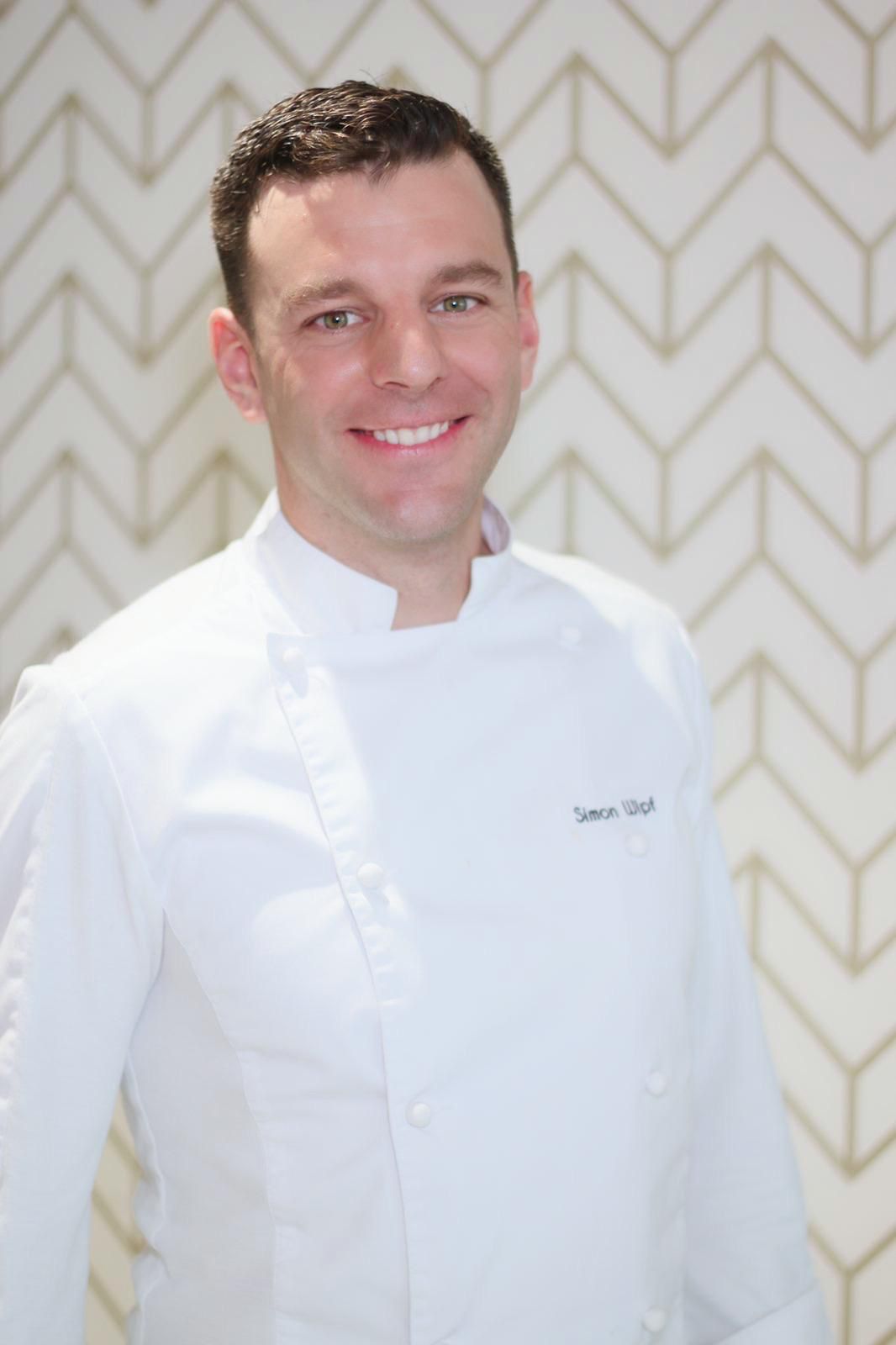
For the catering industry, the World Cup will be a big challenge that requires incredible planning. A tsunami of people is coming our way, all of whom will want to eat and drink. In the summer, various forecasts were made for food consumption during the World Cup. Almost everything will have to be imported – although Qatar now produces its own vegetables and dairy products.
The caterers in the fan zones and in the stadiums have to prepare tens of thousands of meals. First and foremost, the logistics are a problem. How do you deliver these huge quantities of food? You have to organise dozens of lorries especially for that. And how do you even get from A to B when many roads in the city are closed?
Our hotel also received catering requests, but we cancelled them. Now we are setting up our own fan zone in the hotel.
On top of that, there are the staffing requirements. At the moment, every hotel in Doha needs more staff, and there is a shortage. We have hired almost 40 extra cooks – most of them interns from Indonesia.
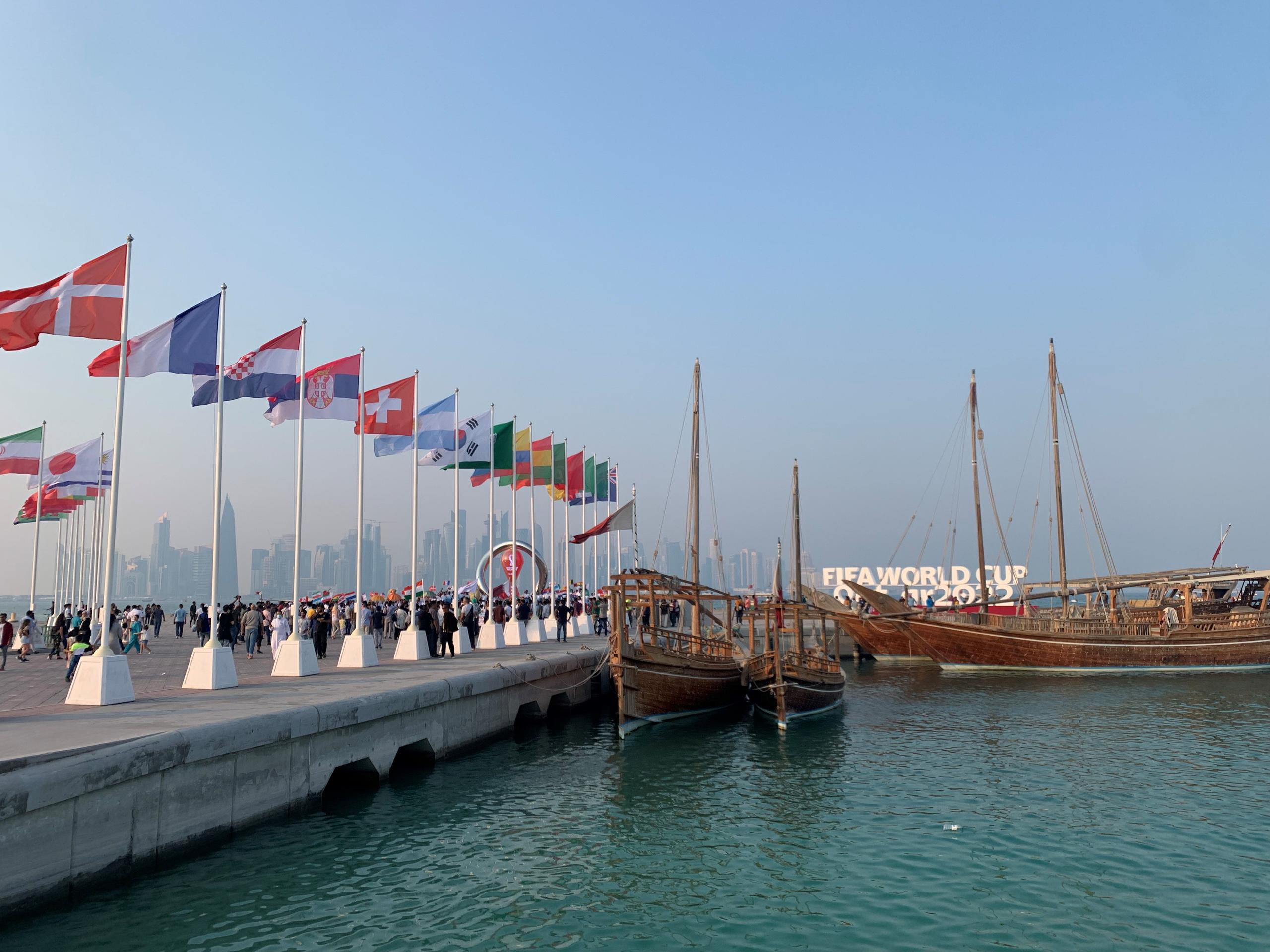
More
Countdown to the World Cup in Qatar: ‘Cows have been flown in’
Fortunately, there were test matches. The organisers were able to learn a few lessons ahead of the real thing. Once, the water in the stadium sold out. Another time, I almost froze to death because the air-conditioning was turned up so high. And at the same game, I had to wait an hour and a half before I could board a bus to take me home.
I can’t and won’t say anything publicly about the criticism of the Qatar World Cup and the living and working conditions of migrant workers. Of course, there are always things that don’t go so well, but I haven’t witnessed anything myself and don’t want to get involved.
I have a good life here. The sun shines every day and that gives good energy, even if it is much too hot during the summer months. That’s when I miss the Swiss landscape and the fresh air. Back home, I would go mushroom picking or jogging.
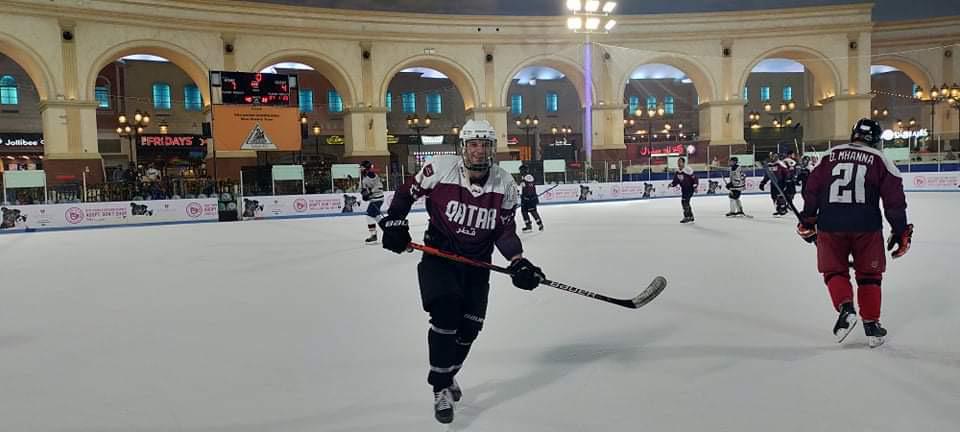
But I can also pursue my hobby, playing ice hockey, in Qatar. I have also met some Qataris here. But these acquaintances remain superficial, the locals are somewhat reserved, although they are friendly and helpful. I don’t know many Swiss people in Doha either. There are frequent events where people meet, but because of my job and routine, I often can’t go.
But I will go to the stadium to watch the Swiss games. Although the prices of flights to Doha are very high, I hope lots of Swiss fans will make it.”
Translated from German by Catherine Hickley/ds
Forced labour, exploitation, unexplained deaths – Qatar has faced fierce criticism since being selected as host of the World Cup. The conditions for migrant workers have improved since FIFA decided to host the World Cup. But the criticism continues.
One month before the kick-off, Amnesty International published a new reportExternal link demanding dramatic improvements from Qatar and the football association FIFA before the World Cup starts. According to Amnesty International, the grievances are far from being resolved: the organisation cites homophobic laws, restrictions on freedom of the press, and labour law shortcomings.
“Thousands of migrant workers continue to face the problem that their wages are paid late or not at all, their rest days are cancelled and it is impossible for them to change jobs. They have little legal recourse against these violations,” writes Amnesty International. Moreover, the deaths of thousands of migrant workers in Qatar remain unresolved.
Around three million people live in the country on the Persian Gulf, of whom only 15% are Qataris. The majority of the population are economic migrants without Qatari citizenship. The country has one of the highest proportions of foreign inhabitants in the world.
More

In compliance with the JTI standards
More: SWI swissinfo.ch certified by the Journalism Trust Initiative


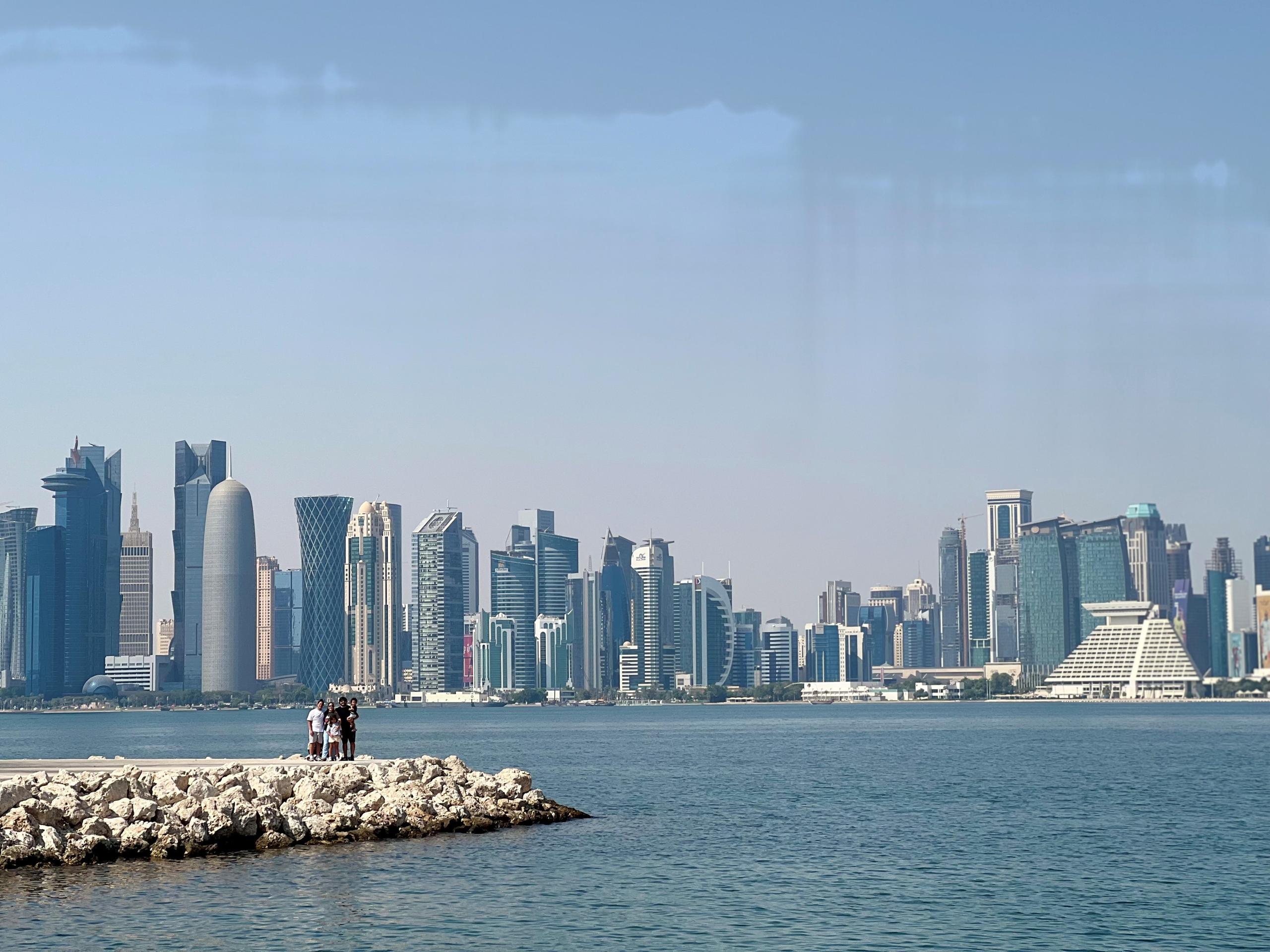
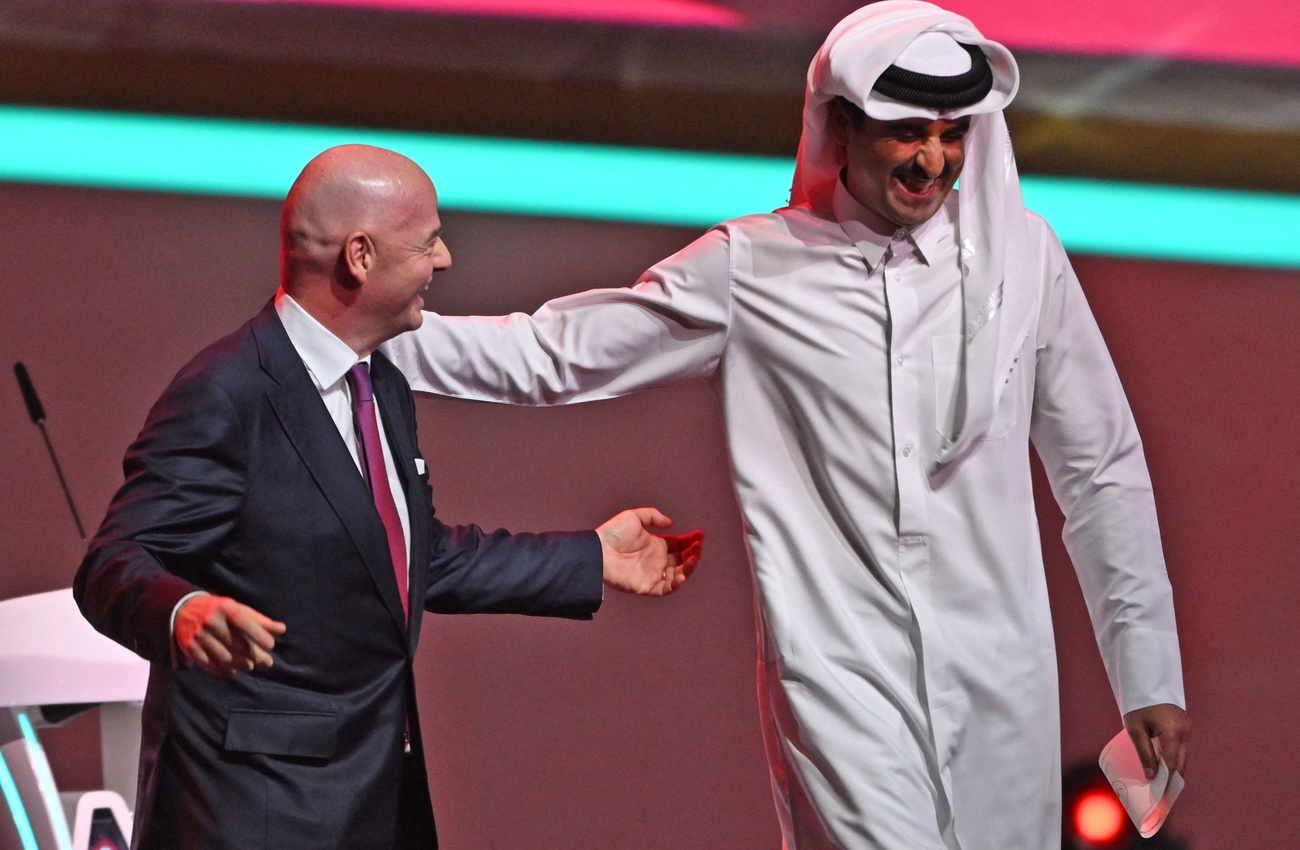
You can find an overview of ongoing debates with our journalists here. Please join us!
If you want to start a conversation about a topic raised in this article or want to report factual errors, email us at english@swissinfo.ch.